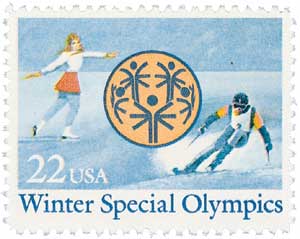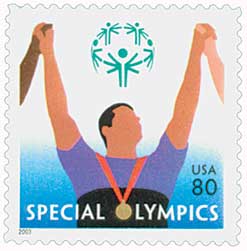
U.S. # 4986
2015 49¢ Special Olympics World Games
First-Class Mail
First International Special Olympics
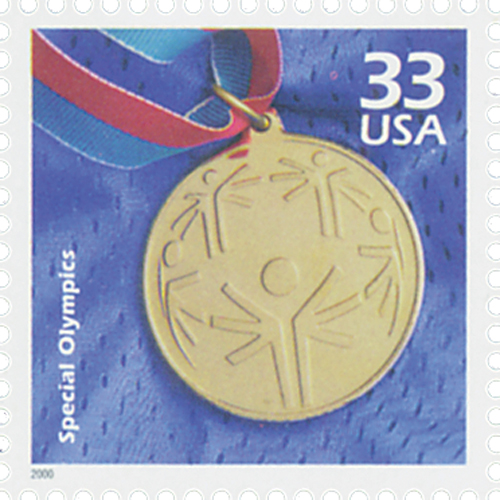
On July 20, 1968, Eunice Kennedy Shriver held the first International Special Olympic Games in Chicago, Illinois.
Eunice Kennedy Shriver, sister of President John F. Kennedy, was the founder of the Special Olympics. In 1962, she opened “Camp Shriver” in her backyard to provide children with intellectual disabilities a place to play. This turned into an annual event and led to the creation of similar camps across the nation.
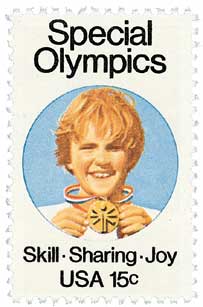
Next, Shriver called for nationwide sports contests. She received a proposal from the Chicago Park District for a citywide track meet, similar to the Olympics. Excited by the idea, she asked that it be opened to athletes from around the country. Held on July 20, 1968, the event became the first Special Olympics. One thousand athletes from the United States and Canada participated in about 200 events.
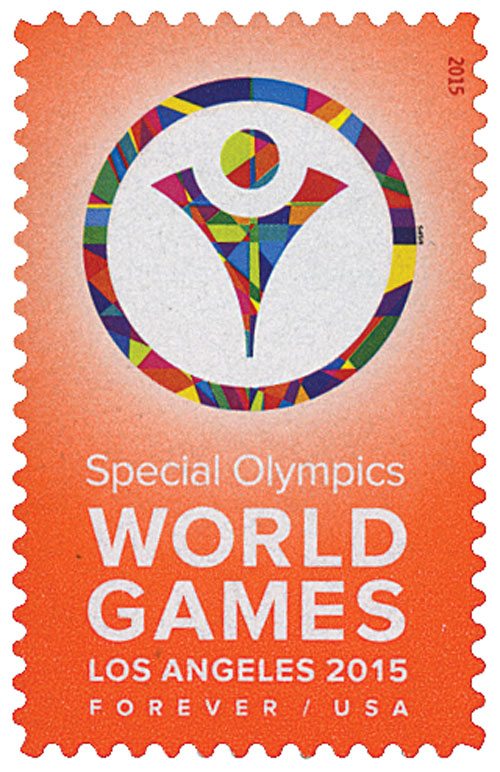
The Special Olympics movement has since grown to include about 4.4 million athletes in over 170 countries. There are thousands of competitions yearly, with World Summer and Winter Games every two years. The International Olympic Committee officially recognized the Special Olympics in 1988.
Special Olympics provide genuine sports, competition, and achievement opportunities for adults and children with intellectual disabilities. As the focus on disabilities fades, people drop the emphasis on what Special Olympics athletes cannot do, and instead celebrate their skills and accomplishments.
Click here for Shriver’s speech at the first Special Olympics.



